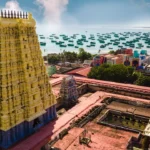Ugadi, also known as Yugadi, is a vibrant and joyous festival celebrated predominantly in the southern states of India, including Andhra Pradesh, Telangana, and Karnataka. Marking the onset of the New Year according to the Hindu lunar calendar, Ugadi is a time of renewal, celebration, and cultural richness. This blog delves into the significance of Ugadi, its traditions, cultural practices, and the ways it is celebrated across different regions.
Ugadi 2025 Date
Sun, 30 Mar, 2025
Understanding Ugadi
1. Significance and Timing: Ugadi falls on the first day of Chaitra, the first month of the Hindu lunar calendar. This usually corresponds to late March or early April. The festival symbolizes the arrival of spring and the beginning of a new year. “Ugadi” is derived from the Sanskrit words “Yuga” (age) and “Adi” (beginning), signifying the start of a new era or age.
2. |Astrological and Cultural Relevance: Ugadi is based on the lunar calendar and marks the end of the old year and the beginning of a new one. It is believed to bring prosperity and happiness. Astrologically, it is considered an auspicious time to start new ventures, as it is believed to bring good fortune and positive energy.
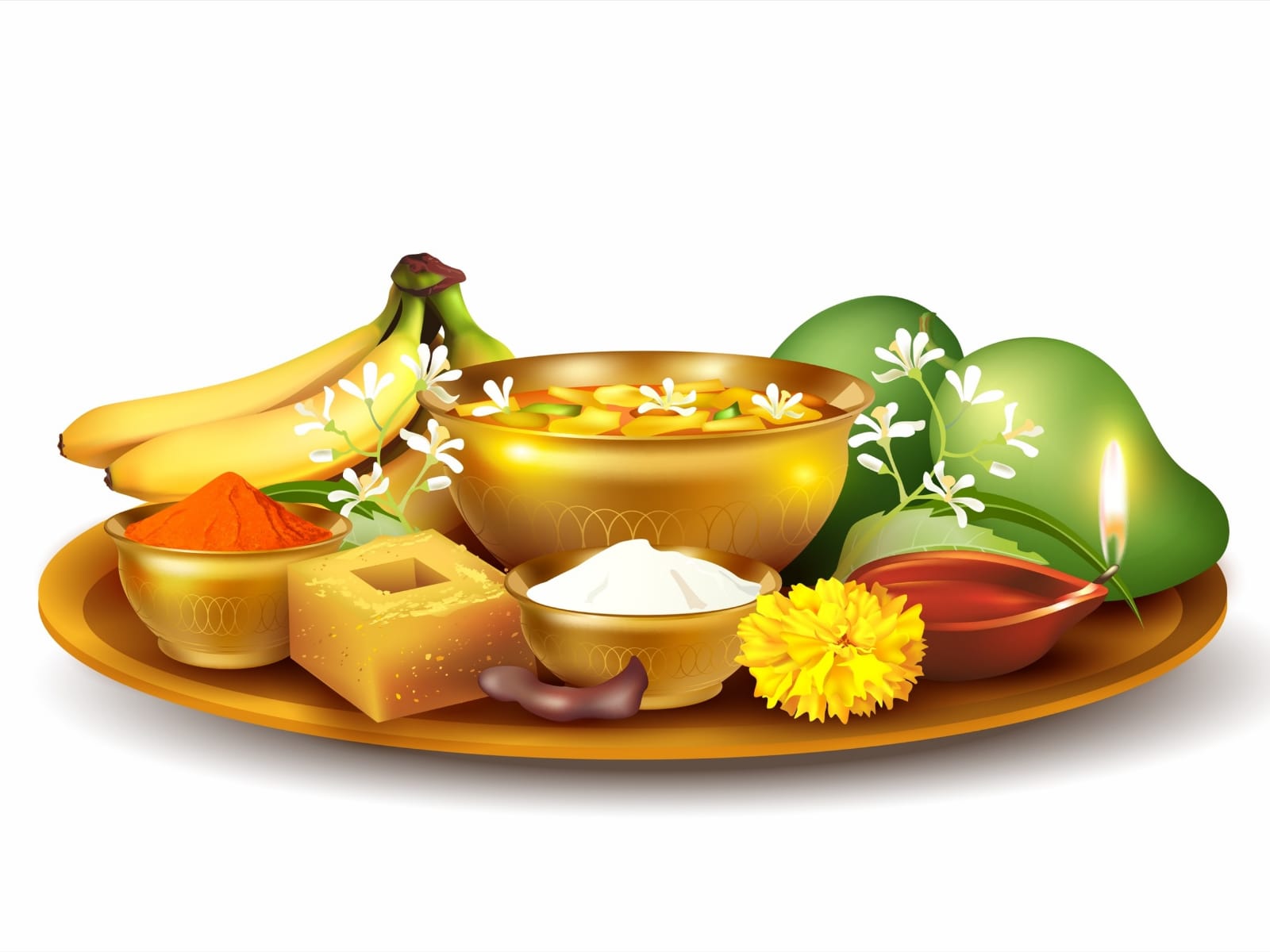
What is Ugadi celebrated for?
Ugadi, also known as Yugadi, is celebrated primarily for the following reasons:
1. New Year Celebration: Ugadi marks the beginning of the new year according to the Hindu lunar calendar. It signifies the start of Chaitra, the first month of the calendar, and is an opportunity to welcome a fresh start and new beginnings.
2. Arrival of Spring: The festival aligns with the onset of spring, a season associated with renewal and rejuvenation. It celebrates the transition from the cold, dry winter to the warm, vibrant spring.
3. Cultural and Religious Significance: Ugadi is a time for honoring tradition, culture, and religious beliefs. It involves various rituals and ceremonies that are meant to seek blessings for health, prosperity, and happiness in the coming year.
4. Symbolism of Life’s Varied Experiences: The traditional dish prepared for Ugadi, Ugadi Pachadi, incorporates a mix of six tastes (sweet, sour, salty, bitter, spicy, and tangy) symbolizing the diverse experiences of life. This dish represents the acceptance of life’s ups and downs and the balancing of these experiences.
5. Family and Community Bonding: This Festival is an occasion for family gatherings, socializing, and cultural festivities. It provides an opportunity to strengthen bonds with family and friends, and to engage in community events and celebrations.
Overall, This Festival is celebrated as a festival of new beginnings, cultural heritage, and the celebration of life’s diverse experiences.
Traditional Celebrations and Rituals
1. Household Preparations: In the days leading up to this festival, homes are cleaned and decorated with fresh mango leaves, which are believed to bring good luck and ward off negative energies. Rangoli (colorful patterns) is drawn at the entrance of homes to welcome guests and invite positive vibes.
2. Pooja (Religious Ceremony): On this festival, families perform a special pooja (prayer ritual) to seek blessings for the coming year. The pooja usually involves offerings to deities and the recitation of prayers or hymns. Many households also visit temples to participate in special Ugadi services and receive blessings from the priests.
3. Traditional Cuisine: Food plays a central role in Ugadi celebrations. The festival is marked by the preparation of a variety of traditional dishes, with a special emphasis on a dish called “Ugadi Pachadi.” This unique dish is made from a mixture of six tastes: sweet (jaggery), sour (tamarind), salty (salt), bitter (neem leaves), spicy (green chilies), and tangy (raw mango). The combination of these tastes symbolizes the diverse experiences of life—joys, sorrows, and everything in between. Other popular dishes include pulihora (tamarind rice), bobbatlu (sweet flatbreads), and various regional delicacies.
4. Cultural Events: This festival is celebrated with various cultural events and activities. Traditional music and dance performances, including folk dances like “Lambadi” and “Kuchipudi,” are integral to the festivities. Community gatherings often feature storytelling, skits, and recitations of ancient texts.
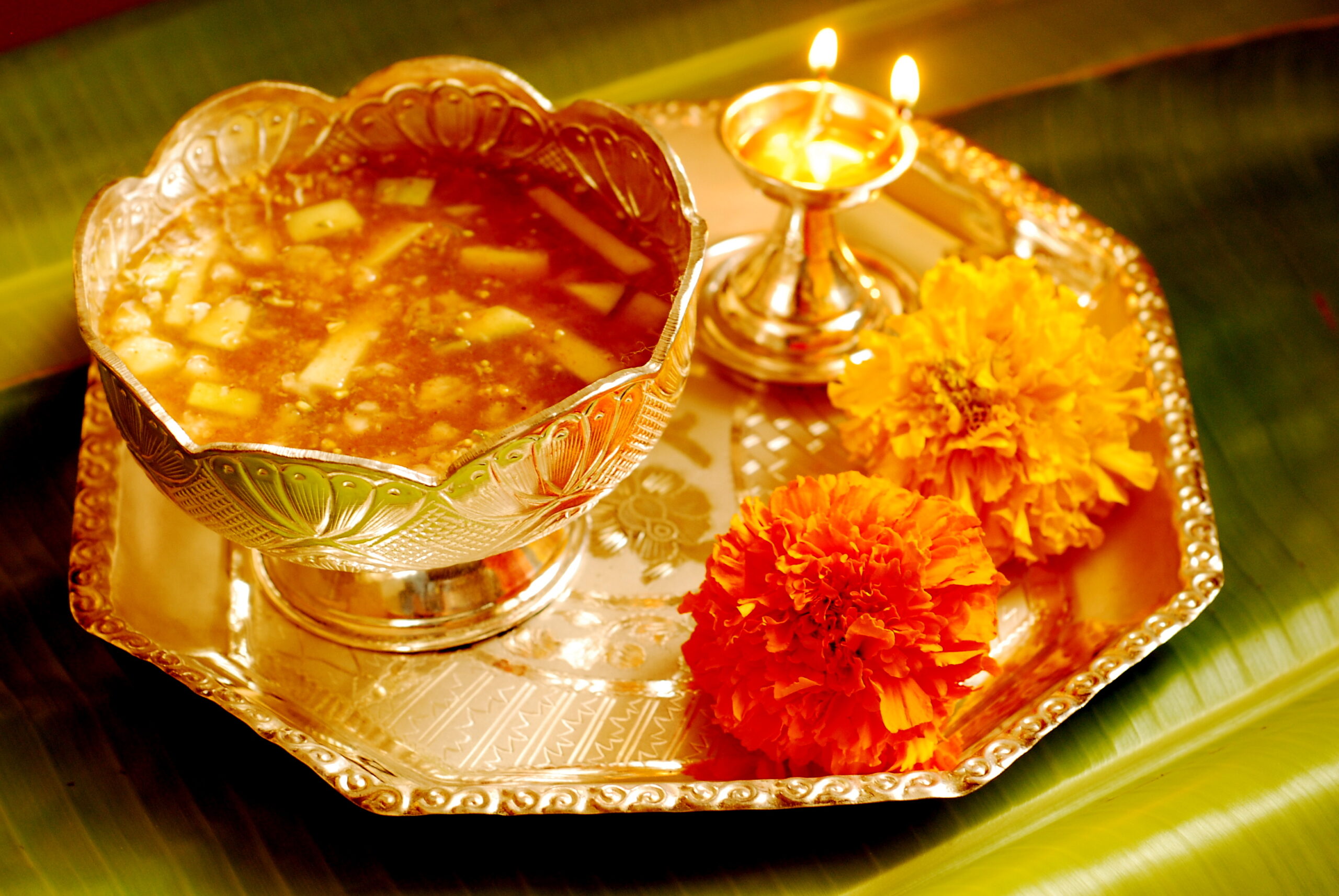
Related Posts
Dussehra: 5 Powerful Insights into the Festival’s Significance and Traditions
Why Is Christmas Celebrated: 5 Key Aspects of Its Rich History and Traditions
Regional Variations
While this festival is celebrated with great enthusiasm across South India, the traditions and customs can vary from one region to another.
1. Andhra Pradesh: In Andhra Pradesh, this festival is celebrated with immense fervor. The day begins with a ritualistic pooja, followed by a feast featuring traditional dishes. The preparation of Ugadi Pachadi, a symbolic dish representing the highs and lows of life, is a significant part of the celebrations. In urban areas, people often wear new clothes and participate in social gatherings and cultural events.
2. Telangana: In Telangana, this festival is also known as “Yugadi” or “Ugadi.” The festival is marked by the preparation of traditional dishes like pulihora (tamarind rice), and the wearing of new clothes. The highlight of the celebrations is the “Ugadi Pachadi,” which is prepared with a mix of jaggery, tamarind, neem leaves, and raw mango. The festival is an occasion for families to come together, visit temples, and participate in cultural activities.
3. Karnataka: In Karnataka, this festival is celebrated with a blend of traditional and contemporary practices. The day begins with a pooja followed by a feast of traditional dishes like obbattu (sweet flatbreads) and chitranna (lemon rice). The festival also features cultural events, including music and dance performances. People decorate their homes with colorful rangoli and mango leaf decorations, and some even participate in processions and community gatherings.
4. Maharashtra and Goa: In Maharashtra and Goa, a similar festival called “Gudi Padwa” is celebrated around the same time as Ugadi. Gudi Padwa marks the New Year for Maharashtrians and Goans and features similar customs, including the preparation of festive foods, the hoisting of a “gudi” (a decorated flagpole), and the gathering of family and friends.
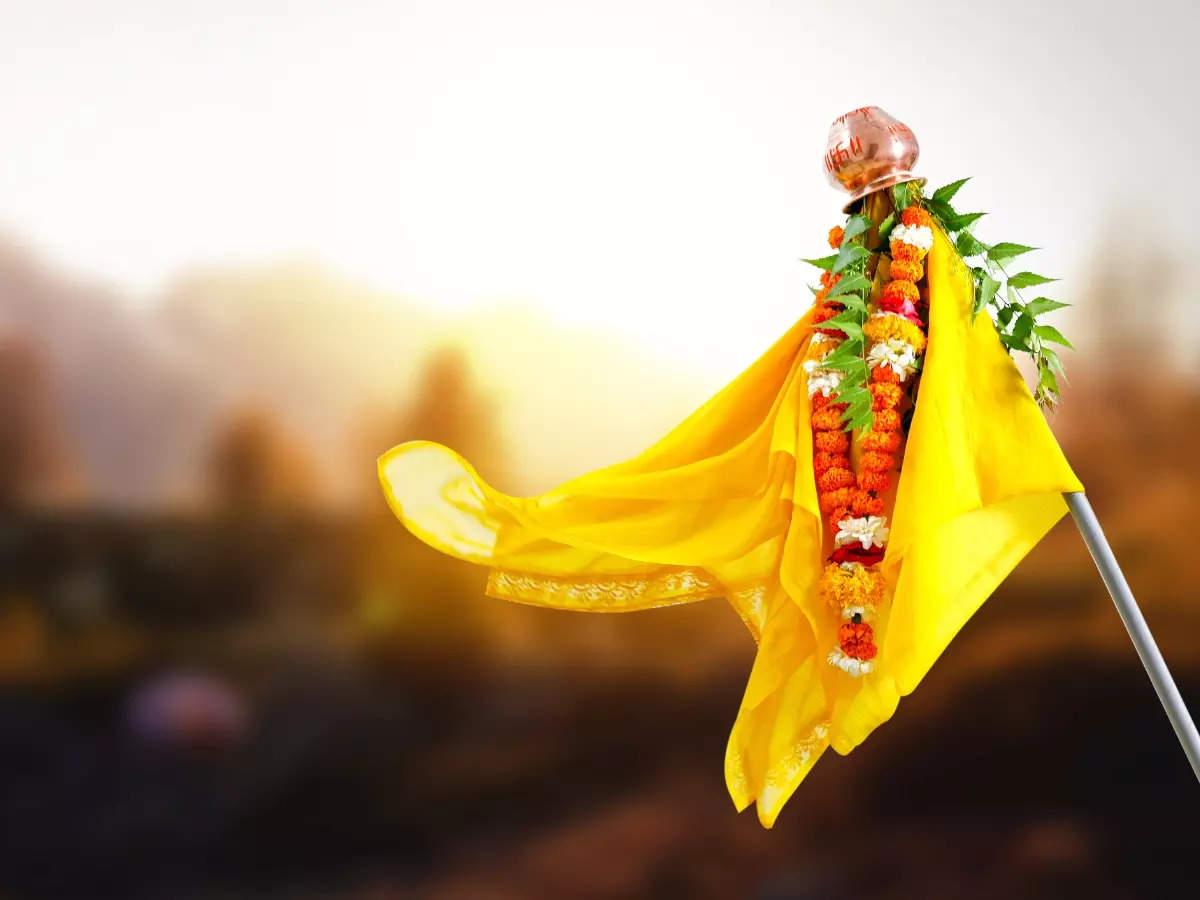
Symbolism and Cultural Significance
1. Symbol of Renewal: Ugadi symbolizes the renewal of life and the opportunity to start afresh. It is a time for introspection and setting new goals for the year ahead. The ritual of preparing Ugadi Pachadi, with its blend of diverse tastes, represents the acceptance of life’s varied experiences—sweet and sour, bitter and spicy.
2. Cultural Heritage: This festival is a celebration of cultural heritage and traditions. It provides an opportunity for people to reconnect with their roots, celebrate their cultural identity, and pass down traditional practices to future generations. The festival reinforces the values of community, family, and togetherness.
3. Community Bonding: This festival fosters a sense of community and togetherness. Families and friends come together to celebrate, share meals, and participate in cultural activities. The festival encourages social interaction and strengthens bonds within communities.
Ugadi Pachadi Recipe – Click Here
Modern Celebrations and Adaptations
In today’s fast-paced world, this festival celebrations have adapted to contemporary lifestyles while retaining their traditional essence. Modern celebrations often include:
1. Virtual Gatherings: With advancements in technology, many people now celebrate this festival through virtual gatherings and online pooja services, allowing families and friends to connect even if they are geographically distant.
2. Fusion Cuisine: Traditional Ugadi dishes are often given a modern twist, incorporating innovative ingredients and cooking techniques while preserving their traditional flavors.
3. Community Events: Public celebrations and community events have become popular, with cultural organizations and local communities hosting this festival festivals, cultural performances, and fairs.
4. Eco-Friendly Practices: Increasing awareness of environmental issues has led to a shift towards eco-friendly practices during this festival. This includes using natural and biodegradable materials for decorations, reducing waste, and promoting sustainable living.
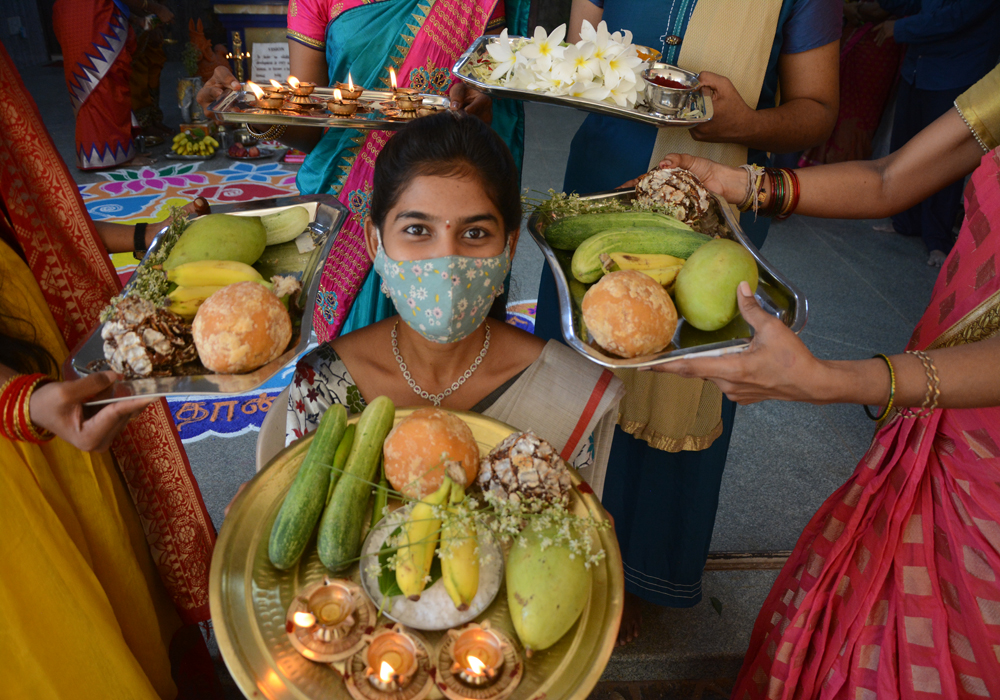
Conclusion
Ugadi is more than just a festival; it is a celebration of life, renewal, and cultural heritage. The festival’s rich traditions, vibrant customs, and symbolic practices offer a unique glimpse into South India’s cultural landscape. Whether through the preparation of traditional foods, participation in cultural events, or simply spending time with loved ones, Ugadi provides a meaningful opportunity to embrace new beginnings and celebrate the diverse experiences of life.
As you celebrate Ugadi, take a moment to reflect on the past year, set intentions for the future, and cherish the joy of togetherness. The festival’s essence of renewal and celebration serves as a reminder to embrace life’s journey with gratitude and positivity.










